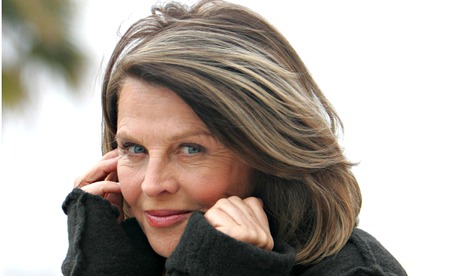
The memory of actor Julie Christie being accused, in print, of "betraying us all" when she admitted to having had a face lift to try to stay working in the mercilessly youth-adoring Hollywood culture, came sharply into focus as I read that cosmetic surgery procedures have risen by 17% on average since 2012.
I had an eye job in my 40s when my eyes seemed to be disappearing into a reptilian layer of skin folds. This made me miserable because we communicate so much with our eyes, and journalists, more than most. I wrote about my eyelid surgery partly because so many feminists were tight-lipped about the procedures they had (and believe me, they did) and I felt it important to be honest about the way I, as a feminist, deal with the human condition. I hadn't anticipated the personal criticism and condemnation – I was accused of body loathing – that came my way. Feminists were not supposed to reveal such feminine frailty in the face of ageing it seemed.
I hope we can take a more nuanced approach now. If only because attack mode and high-mindedness have manifestly failed to put people off seeking surgery. Ever more and younger women are signing up for procedures, from breast enlargement to liposuction, which involves removing fat from areas of the body. According to statistics released this week, the number of liposuction procedures increased by more than 40% last year compared with 2012.
It is, of course, a tragic reflection of the values that have flooded our society so powerfully that we cannot just scoff at the glossy unreality of so much of the imagery that bombards us. Young people in particular cannot feel carefree about their appearance, which is why eating disorders, body dysmorphia and self-harm are all on the increase.
But those who choose the scalpel route are doing so to compete in a culture where youthful beauty is beamed at us as the most desirable thing there is. Despite the despair and sense of failure this message brings to many of us, research confirms that attractiveness brings more opportunities in both the work and romance departments. No wonder women, and increasingly men, frightened witless at the prospect of losing the clout which having visibly appealing looks brings, are heading for nips, tucks, lifts, botox and more. Despite the breast implants scandal, 11,000 women had breast enhancement operations in 2013, an increase of 13% on the previous year.
I am absolutely of the view that, as a society, we have much to do to tackle the objectification and self-esteem issues that afflict young women in particular. But I think we have to do it through dialogue and discussion with young women (and young men) who are ever-more prone to the looks culture. We have to make time to involve ourselves with them and help them to see the ways many of us have built rewarding lives without being drop-dead gorgeous. Indeed, the subject of my new book is the ways in which, as we mature, it can become easier to live with who and what we are.
The minister for women and equalities, Jo Swinson, has the right idea with the Campaign for Body Confidence she instigated and which has been taken up by the government. She talks of the need to open up the debate and talk more openly about how low body confidence at all ages affects performance in the workplace and family relationships.
Condemning individuals for decisions they take to compete in a culture they themselves didn't create is counterproductive and harmful, even if those decisions are ones we regard as medically unnecessary and politically distasteful. To me, the huge value of feminism has been the life-affirming value of women supporting each other in their choices. It is about understanding more, condemning less.

